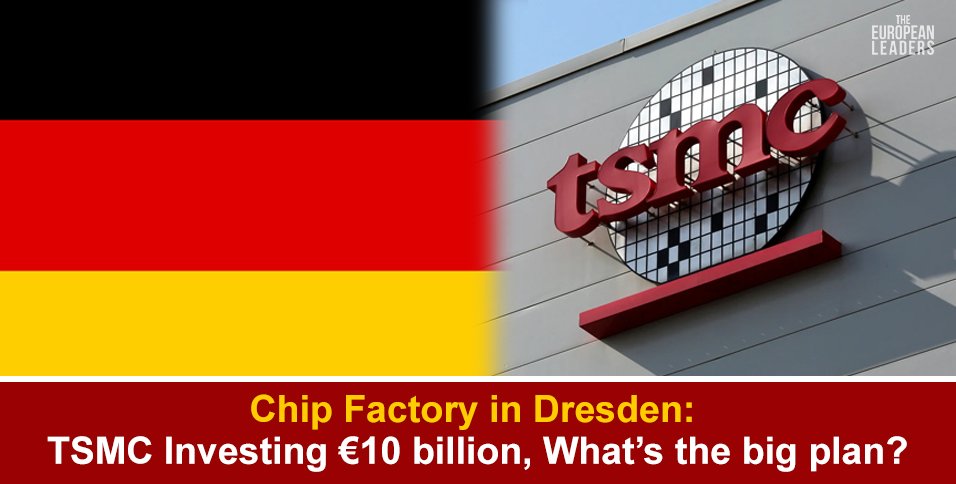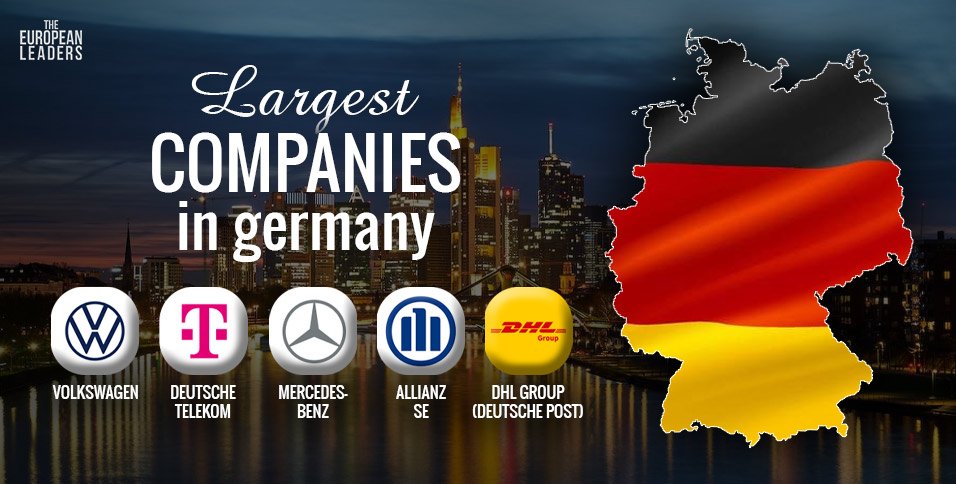The European Leaders
21 August 2024
Berlin – Taiwan Semiconductor Manufacturing Company (TSMC) has officially broken ground on its first European chip factory in Dresden, Germany, marking a significant milestone in the continent’s efforts to bolster its semiconductor production capabilities.
The €10 billion ($11 billion) investment is expected to reshape the landscape of chip manufacturing in Europe, particularly in light of increasing global tensions and supply chain vulnerabilities.
Chip Factory in Dresden: A Major Investment for Europe
The groundbreaking ceremony, held on August 20, 2024, was attended by prominent figures including German Chancellor Olaf Scholz and European Commission President Ursula von der Leyen. The project has received a substantial boost from the European Union, which approved €5 billion in state subsidies to support the establishment of the facility. This financial backing is part of the EU’s broader strategy to enhance domestic semiconductor production and reduce reliance on imports from Asia.
Chancellor Scholz emphasized the importance of the project, stating, “We are dependent on semiconductors for our sustainable future technologies, but we must not be dependent on other regions of the world for the supply of semiconductors.” The Dresden plant is expected to play a crucial role in achieving the EU’s goal of producing 20% of the world’s semiconductors by 2030.
Stake Distribution and Strategic Partnerships
In a significant joint venture, TSMC will own 70% of the Dresden facility, while German companies Bosch, Infineon, and NXP will each hold a 10% stake. This collaboration not only emphasizes TSMC’s commitment to the European market but also fosters a strong partnership with local industry leaders, enhancing the region’s technological capabilities.
Focus on High-Performance Chips
TSMC’s Dresden facility will specialize in high-performance chips tailored for the automotive and industrial sectors. The plant will utilize advanced FinFET technology, allowing for the production of chips that integrate multiple features into a single unit, offering enhanced performance while consuming less power.
This capability is not currently available in other European manufacturing facilities, positioning the Dresden plant as a “first-of-its-kind” in the EU.
The factory is projected to have a monthly production capacity of 40,000 300mm (12-inch) wafers, focusing on microcontroller units (MCUs) that are essential for various automotive components, such as windows, brakes, and sensors. The production is slated to begin by the end of 2027, with TSMC aiming to ramp up operations to meet the growing demands of European industries.
Strategic Implications and Future Prospects
The establishment of TSMC’s chip factory in Dresden is not only a pivotal move for the company but also a strategic development for Europe’s semiconductor ecosystem. By localizing chip production, TSMC aims to enhance supply chain resilience and mitigate the risks associated with global disruptions, as highlighted by the recent challenges posed by the COVID-19 pandemic and geopolitical tensions, particularly between the U.S. and China.
The project is a testament to Germany’s commitment to becoming a leading hub for semiconductor manufacturing in Europe, with plans to invest an additional €20 billion to support domestic chip production.
TSMC’s collaboration with European firms such as Bosch, Infineon, and NXP, each holding a 10% stake in the joint venture, further solidifies the partnership between the semiconductor giant and local industries.
Conclusion
TSMC’s €10 billion investment in Dresden represents a significant leap forward for Europe’s semiconductor ambitions. As the continent seeks to secure its supply chains and foster innovation in critical technologies, the new facility is poised to play a vital role in shaping the future of semiconductor manufacturing in Europe.
With production capabilities set to enhance local industries and meet the demands of a rapidly evolving market, TSMC’s chip factory in Dresden is a strategic move that underscores the importance of self-sufficiency in the global semiconductor landscape.








